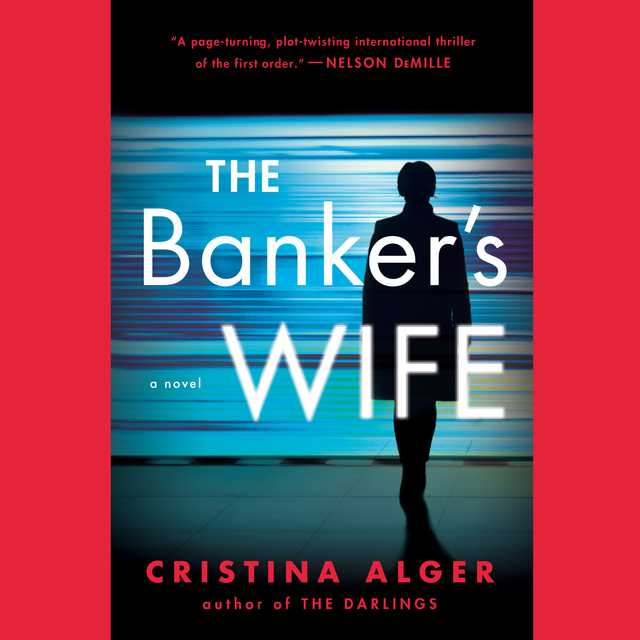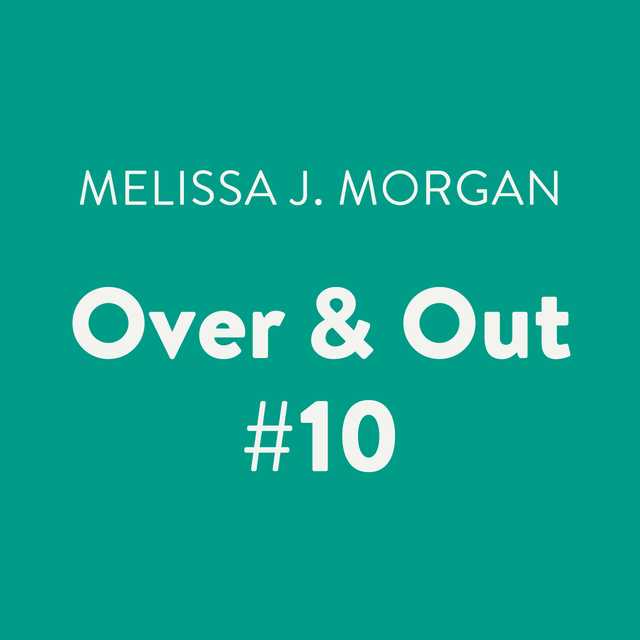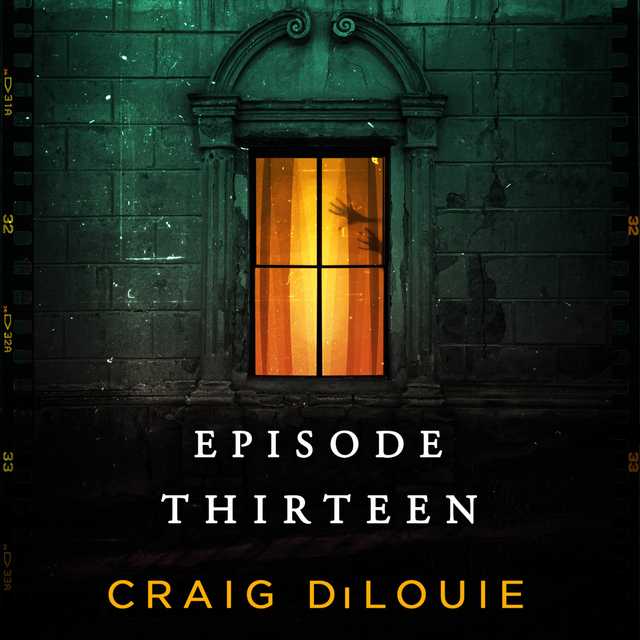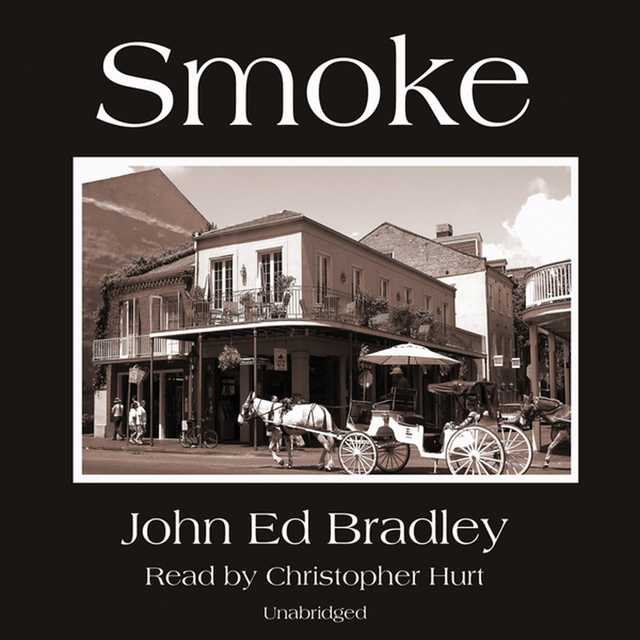Building a Bridge Audiobook Summary
“A treasure…a wise and entertaining book that should appeal to the spiritual pilgrim in all of us, no matter what the faith and no matter whether believer or nonbeliever.”
– Chicago Tribune
The New York Times bestselling author of The Jesuit Guide to (Almost) Everything and Jesus: A Pilgrimage turns his attention to the relationship between LGBT Catholics and the Church in this loving, inclusive, and revolutionary book.
A powerful call for tolerance, acceptance, and support–and a reminder of Jesus’ message for us to love one another. In this moving and inspiring book, Martin offers a powerful, loving, and much-needed voice in a time marked by anger, prejudice, and divisiveness.
On the day after the Orlando nightclub shooting, James Martin S.J. posted a video on Facebook in which he called for solidarity with our LGBT brothers and sisters. “The largest mass shooting in US history took place at a gay club and the LGBT community has been profoundly affected,” he began. He then implored his fellow Catholics–and people everywhere–to “stand not only with the people of Orlando but also with their LGBT brothers and sisters.” Father Martin’s post went viral and was viewed more than 1.6 million times.
Adapted from an address he gave to New Ways Ministry, a group that ministers to and advocates for LGBT Catholics, Building a Bridge provides a roadmap for repairing and strengthening the bonds that unite all of us as God’s children. Martin uses the image of a two-way bridge to enable LGBT Catholics and the Church to come together in a call to end the “us” versus “them” mentality. Turning to the Catechism, he draws on the three criteria at the heart of the Christian ministry–“respect, compassion, and sensitivity”–as a model for how the Catholic Church should relate to the LGBT community.
WINNER OF THE LIVING NOW BOOK AWARD IN SOCIAL ACTIVISM/CHARITY.
Other Top Audiobooks
Building a Bridge Audiobook Narrator
James Martin is the narrator of Building a Bridge audiobook that was written by James Martin
Rev. James Martin, SJ, is a Jesuit priest, editor at large of America magazine, consultor to the Vatican’s Dicastery for Communication, and author of numerous books, including the New York Times bestsellers Jesus: A Pilgrimage, The Jesuit Guide to (Almost) Everything and My Life with the Saints, which Publishers Weekly named one of the best books of 2006. Father Martin is a frequent commentator in the national and international media, having appeared on all the major networks, and in such diverse outlets as The Colbert Report, NPR’s Fresh Air, the New York Times and The Wall Street Journal. Before entering the Jesuits in 1988 he graduated from the Wharton School of Business.
About the Author(s) of Building a Bridge
James Martin is the author of Building a Bridge
More From the Same
- Author : James Martin
- Jesus
- Between Heaven and Mirth
- Learning to Pray
- The Jesuit Guide to (Almost) Everything
- The Abbey
- Publisher : HarperAudio
- Abraham
- American Gods [TV Tie-In]
- Dead Ringer
- House of Sand and Fog
- Prey
Building a Bridge Full Details
| Narrator | James Martin |
| Length | 2 hours 8 minutes |
| Author | James Martin |
| Category | |
| Publisher | HarperAudio |
| Release date | June 13, 2017 |
| ISBN | 9780062749963 |
Subjects
The publisher of the Building a Bridge is HarperAudio. includes the following subjects: The BISAC Subject Code is Christian Life, Religion, Social Issues
Additional info
The publisher of the Building a Bridge is HarperAudio. The imprint is HarperAudio. It is supplied by HarperAudio. The ISBN-13 is 9780062749963.
Global Availability
This book is only available in the United States.
Goodreads Reviews
Kevin
July 19, 2017
Father Jim Martin is a phenomenal priest and author. I have great respect for his teaching and his advocacy for marginalized persons, be it refugees or LGBT Catholics. As a gay Catholic, I'm overjoyed this book exists. Most of my gay Catholic friends left the church years ago due to hate speech from church officials and the Vatican. Fr. Jim's book is not just for LGBT Catholics, it's for all current and former Catholics. I attended his book reading, and I love his comment that "God knew when you were conceived that you'd be an LGBT person. And when entered the Catholic Church at baptism, you were made a permanent member. No one can take that away. Every priest and bishop in America needs to read this book, and more importantly, start a dialogue with LGBT persons in their area. They are everywhere.
Matthew
December 13, 2017
Given the storm of controversy surrounding Fr James Martin of late, I figured I needed to read this book to see exactly what his position is.Among Catholics in general, there tends to be a divergence of views upon approaching the delicate topic of LGBT Catholics, between those who wish to emphasize the theology of marriage and its concomitant social mores and those who wish to focus on mercy and inclusiveness. These approaches are not necessarily opposed to each other, however there is a danger in leaning too heavily on either side; on the one hand, fixation on rules can occlude charity, and on the other, an excess of acceptance can lead to tension with the teachings of the Church.Fr James Martin frames this essay in the language of the Catechism, stressing that the Church teaches that those with homosexual attraction ought to be treated with 'respect, compassion and sensitivity'. Martin develops each of these as themes, with an invitation both to the Church to adopt a respectful, compassionate and sensitive approach to the LGBT community, and also for the LGBT community to be respectful, compassionate and sensitive to Church teachings, Sacred Tradition, and the global nature of the Church.Among the points he raises that I found helpful are the following:- Using the appropriate name is a means of conveying respect. This applies to individuals and also to groups and communities. Up to now the Church has been reluctant to use the term 'LGBT', but whatever the objections to the term, surely avoiding its use is not worth isolating those who identify strongly with the LGBT community. - The Church, as an evangelizing community, ought not to be content that a significant portion of the 'people of God' face obstacles to realizing that community, and in fact find a much greater sense of community elsewhere, in groups that accept them, love them and reaffirm them with dignity. The Church should be doing this, reaffirming LGBT people in their gifts and talents that can be used to build up the Church.- Fr Martin suggests that the language used in the Catechism about homosexual attraction being 'objectively disordered' be changed. This may be a controversial point, but after considering it I find myself agreeing with him. The phrase is something of a technical term, with its meaning properly understood in a discussion of natural law, order and complementarity. To the untrained ear, however, it appears needlessly insulting. It should be possible, without changing the substance of the Church's view, to soften the language used. The Catechism is, after all, written to be read by all the Christian faithful, not just those trained in philosophy or theology. One might argue that such a conciliatory approach has already been adopted by the Church when speaking of non-Catholic Christians, with the aim of facilitating ecumenism while losing nothing of the substance of the Church's position.- Fr Martin's exposition of Jesus' approach to sinners in the gospel made for a particularly good point. Jesus loved unconditionally. He didn't demand a certain behavior before extending help. And after showering sinners with love, respect, compassion and sensitivity, only then does he exhort them to 'go and sin no more.' This approach strikes me as the most appropriate way for the Church and all her faithful to approach this thorny topic.There is a similarly challenging invitation made to the LGBT community to learn to really understand why the Church teaches what she does, what bishops and priests face in their daily lives, and to avoid rhetoric that further distances the LGBT community from the Church. Both 'lanes' on the bridge are afforded equal coverage in the book, but I found the Church-to-LGBT outreach section more relevant to me personally.The book does not claim to have all the answers. The proposed bridge has a wide gulf to cross, and Fr James Martin is performing something of a prophetic role by standing in the gulf and attempting to mend a wound in the Body of Christ.Based solely on this book, any accusations of unfaithfulness to Church teaching are unfounded. Nowhere does he suggest that the Church ought to compromise its teaching. Sure, he doesn't lead with rules and demands, for that is no way to build a bridge.He is serious that the success of this project is only possible through prayer. To that end, the whole second half of the book is a series of scripture passages and reflections intended for Ignatian meditation.Overall, I thought this book was a remarkable template for how to build up the Body of Christ in the face of so many factors that wish to tear it apart. I can only hope that more people read it with an open and charitable heart.
Josh
September 14, 2017
Father Martin offers up a small, easily readable book which, for all the furor it's raised in certain sectors of the Catholic Church, is actually remarkably tame. There is nothing scandalous here, just one priest's sharing of his most effective ideas for reaching out to certain groups of marginalized Catholics.In fact, I found myself wondering if Fr. Martin might not be offering us a blueprint for the various other deep divisions facing our society these days. All he's really advocating here is for two sides to listen to each other, make some attempt at dialogue, and to have the patience to let them work through whatever issues they have to work through. He offers no answers, only a process and a Christ-like pastoral vision.
Rissie
August 23, 2019
Even though I am not Catholic or gay, I found this book very instructive and inspiring. There are so many bridges that need to be built in our communities, and I know that we all find ourselves on one side in any number of arenas … religion, politics, workplace, school.His focus is how BOTH sides and learn respect, compassion, and sensitivity for the other. No one is perfect, and we can ALL improve our interactions with people we disagree with.
Ashley
July 28, 2021
My first foray into the amazing truth of a truly welcoming Catholic Church. This is a great book to give to your aunt, uncle, friend or grandparent who isn't quite anti-LGBT but feels uncomfortable with accepting someone LGBT+ due to "religious reasons."As Fr. Martin effectively proves, there is no such thing as a "religious reason" to reject or outcast anybody who is gay, lesbian, bisexual or trans and anyone else who doesn't identify as cisgender or heterosexual. Catholicism asks us to love and support our neighbor regardless of our differences. Moreover, Catholicism requires us to reach out to the LGBT community especially as an oppressed community in need of love and shelter.If you're familiar with Father James Martin's activism, you'll be able to clearly tell that this book was published in 2017 and reflects a former version of Fr. Martin who was just beginning to open his heart to LGBTQ+ advocacy. He makes some statements that are a little insensitive, but as we know, he evolves from this place into the wonderful advocate he is today.
Gina
October 20, 2017
So many people are upset by this book. I think it's the ones who haven't read it. Def worth reading. He has a very simple message: respect, compassion, & sensitivity. From & for all. How can you argue with that? It's a two way bridge.
Leah
December 18, 2017
A beautiful book that reminds us that to build a bridge and cross it we need to listen to each other, be with each other and spend time getting toknow each other as Jesus has called us to do.
Elyse
January 07, 2018
This is a lovely little book. It is really a long essay (based on a lecture at New Ways Ministry), with an added section at the end. It is a nice effort on Fr. Martin's part to ask for compassion and respect between the church AND the LGBT community (going BOTH ways). I read the lecture part, and then skimmed through the beautiful 2nd section, which is a selection of Scripture passages for reflection, along with questions to ask yourself. (These passages have been useful for Fr. Martin when he is ministering to people involved with these issues.)It is very alarming, after finding nothing extreme or heretical in the book, to witness the smear campaigns against him, coming from Catholics (in social media and other outlets). He is not contradicting church teaching or dogma. All he is doing is trying to start some kind of dialogue, and to help LGBT Catholics AND their families feel less embattled. What is wrong with that?
Robert
July 14, 2017
One of the most important issues of our day in the church concerns the inclusion of LGBTQ+ people. My own congregation became "Open and Affirming" just last year, after several years of open discussion. As difficult as that work was for a congregation, which has a great degree of autonomy, you can imagine the difficulty with which a Christian communion that is both ancient and nearly universal. While winds of change are being felt, it may take years, even generations for those changes to be fully experienced. For those most affected by the church's lack of movement, change may not come quick enough, for others it is coming at too rapid of a pace. So how does one build a bridge that allows for productive conversation between an ancient institutional church that finds it difficult to institute change (look at what happened with Vatican II) and the LGBTQ community?Into the midst of this conversation steps James Martin, a Jesuit theologian and author, who has demonstrated a unique ability to stand in the gap on a number of issues. He is one who desires to be faithful to the church he has committed himself to serve and the people whom has come to know, people who are often marginalized and excluded. Such is the case here. He builds on Catholic teaching and personal experience to build a bridge that involves respect, compassion, and sensitivity. The origins of this brief, readable, thoughtful book, is to be found in the response of Catholic leaders to the shooting at the Pulse Nightclub in Orlando. He writes that he found revelatory the fact that "only a few Catholic bishops acknowledged the LGBT community or even used the word gay at such a time that the LGBT community is still invisible in many quarters of the church. Even in tragedy it's members are invisible." (p. 2) He acknowledges that a chasm exists between the institutional church and the LGBT community, and that a bridge needs to be built. He hopes that this little book can be the start of that effort. He writes from the perspective of one who has "ministered to and worked with LGBT people, most of them Catholics." (p. 3). In addition to his relationships with LGBT folks, and their families, he has also worked with Catholic leaders. So, he knows the lay of the land. He knows of the deep hurt felt by those excluded and their families, and he seeks to address them. This book, he notes emerged from a presentation given to a Catholic group -- New Ways Ministry, which "ministers to and advocates for LGBT Catholics. He received an award from that group for his work in building bridges. He seeks, in this book, to urge the church he loves to treat LGBT people with "respect, compassion, and sensitivity," as well as asking that the LGBT community would reciprocate in their relationships with the church. He knows the difficulty in what he asks of those hurt by the church, but he also knows that there are many in the church, like himself, even among the hierarchy, that want the church to be fully welcoming. He asks, however, for time and for patience, qualities he knows are difficult to express. He writes with compassion and desire to see change. He would like it to come faster, but as he notes, this is not just an American church, and so what sounds rather bland to an American audience might be seen as radical to the ears of Catholics in other parts of the world. Finding a way to bridge that chasm is also part of the journey. I read the book as a Protestant who is cisgender, heterosexual, married, white, privileged. I have a brother, a cousin, a cousin-in-law who are gay. I have church members and colleagues in ministry who are gay, lesbian, bi-sexual, transgender. I have learned from them that each story is different and distinct. It is with this context that I read this book written by a Catholic to members of the Catholic Church, whether LGBT members or Catholic leaders. I am not the primary audience, but I appreciate his commitment to pursuing a conversation that calls for people to engage each other with respect, compassion, and sensitivity, even when one is not in complete agreement with the other. This is not simply a call to agree to disagree. This is a call to engagement. It is a call to build a bridge so that Catholic tradition can be respected, even as the institutional church responds with compassion and respect to the concerns and needs of members who are LGBTQ. This is important to hear. Martin makes it clear that there are faithful Catholics who are gay, lesbian, bi, transgender, and wrestling with their identity. He is friends with them. He acknowledges them as brothers and sisters in Christ. Does he wish the church would move faster. Yes. But he also understands that you don't turn a super-tanker on a dime.Even if you are not Catholic, this is worth reading. It might be helpful to the conversation within the congregation. That is especially true because Martin provides the readers with a set of "Biblical Passages for Reflection and Meditation." These are not the typical texts one engages when addressing the question of inclusion. These are texts that deal with names and naming, different gifts, care for those who are persecuted, Jesus meeting people where they are, a reminder that we are all "wonderfully made," God is our strength, Jesus' own proclamation of his identity, the call of Peter, the appearance of the risen Christ to Mary Magdalene, and the road to Emmaus. Discussion questions are provided for each text. As you can see, none of the texts are directed to matters of sexual orientation or identity. They are designed to get us talking about our common faith and common humanity. That seems to be a better place to start. The book concludes with a prayer that Martin wrote titled "A Prayer for when I feel rejected." It is written for "all who feel excluded, rejected, marginalized, shamed, or persecuted, in any way or in any place, religious or otherwise" (p. 144). The prayer begins with a recognition that God has made us all who we are: "I praise you and love you, for I am wonderfully made, in your image." Again, I highly recommend this book to the church at large, for it is a call to conversation that can turn the page, for God is in the conversation.
Ashley
January 18, 2023
This should be required reading for all Catholics. Fr. Martin does an excellent job of breaking down how (and why) the Church should be showing more respect and compassion to our LGBTQ neighbors. Some call him a dissident priest because of his work around LGBTQ issues, but after reading this, I can't see why. He says nothing that goes against Church teaching. All he wants is for members of the Catholic community to treat LGBTQ people with the love and dignity that all humans deserve. The highlight of this book is Fr. Martin's use of scripture to point out how Jesus would likely interact with LGBTQ people if he walked the earth today. Far from honing in on the short (often out of context) verses that mention homosexuality by name, Fr. Martin takes well-known Gospel stories such as the Roman centurion and Zacchaeus the tax collector to illustrate how Jesus treated those who lived on the outskirts of society. He calls for modern Catholics to use Christ as a model when choosing how to treat others, both in our speech and our actions.I suppose my biggest critique is that this is such a short, broad overview it could have been an article instead of a book. I do wish Fr. Martin had gone more in-depth, but I realize that this shorter format was probably best for the purpose he intended to serve.
Nick
December 31, 2019
I didn’t find the first part of the book particularly helpful. The part of that part addressed to the Church requires some filtering for me as a non-Catholic. The part addresses to LGBTQ Catholic Christians seems to ask still more of people who have already suffered much.But the second part of the book—meditations in particular Scriptures—could be a great study for a small group. That part offers some of the best of Ignatian spirituality.
Ashley
December 07, 2022
A great love forward in the Catholic Church to be more inclusive of all kinds of love. It’s sad to me how controversial these seemingly obvious messages of love and inclusion are. I’m definitely in the camp that it doesn’t go far enough to fully embracing our LGBTQ brothers and sisters and their families as full members of our community.
Seamus
July 29, 2019
"Community first."
Frequently asked questions
Listening to audiobooks not only easy, it is also very convenient. You can listen to audiobooks on almost every device. From your laptop to your smart phone or even a smart speaker like Apple HomePod or even Alexa. Here’s how you can get started listening to audiobooks.
- 1. Download your favorite audiobook app such as Speechify.
- 2. Sign up for an account.
- 3. Browse the library for the best audiobooks and select the first one for free
- 4. Download the audiobook file to your device
- 5. Open the Speechify audiobook app and select the audiobook you want to listen to.
- 6. Adjust the playback speed and other settings to your preference.
- 7. Press play and enjoy!
While you can listen to the bestsellers on almost any device, and preferences may vary, generally smart phones are offer the most convenience factor. You could be working out, grocery shopping, or even watching your dog in the dog park on a Saturday morning.
However, most audiobook apps work across multiple devices so you can pick up that riveting new Stephen King book you started at the dog park, back on your laptop when you get back home.
Speechify is one of the best apps for audiobooks. The pricing structure is the most competitive in the market and the app is easy to use. It features the best sellers and award winning authors. Listen to your favorite books or discover new ones and listen to real voice actors read to you. Getting started is easy, the first book is free.
Research showcasing the brain health benefits of reading on a regular basis is wide-ranging and undeniable. However, research comparing the benefits of reading vs listening is much more sparse. According to professor of psychology and author Dr. Kristen Willeumier, though, there is good reason to believe that the reading experience provided by audiobooks offers many of the same brain benefits as reading a physical book.
Audiobooks are recordings of books that are read aloud by a professional voice actor. The recordings are typically available for purchase and download in digital formats such as MP3, WMA, or AAC. They can also be streamed from online services like Speechify, Audible, AppleBooks, or Spotify.
You simply download the app onto your smart phone, create your account, and in Speechify, you can choose your first book, from our vast library of best-sellers and classics, to read for free.
Audiobooks, like real books can add up over time. Here’s where you can listen to audiobooks for free. Speechify let’s you read your first best seller for free. Apart from that, we have a vast selection of free audiobooks that you can enjoy. Get the same rich experience no matter if the book was free or not.
It depends. Yes, there are free audiobooks and paid audiobooks. Speechify offers a blend of both!
It varies. The easiest way depends on a few things. The app and service you use, which device, and platform. Speechify is the easiest way to listen to audiobooks. Downloading the app is quick. It is not a large app and does not eat up space on your iPhone or Android device.
Listening to audiobooks on your smart phone, with Speechify, is the easiest way to listen to audiobooks.






























